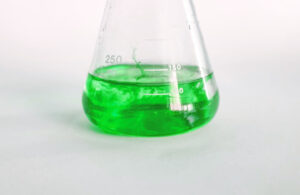The Miracle Benefits of Alpha Lipoic Acid
Alpha lipoic acid (ALA) was discovered in the 1950’s and recognized as an antioxidant in the 1980’s. It plays an essential role in helping the body produce energy. It is necessary for aerobic life. Alpha Lipoic Acid only acts like an antioxidant when there is an excess of it in its free state in our cells. Since there is little free circulating ALA naturally in the body, one needs to supplement or have it injected into the body in order to have enough of it available for its protective, antioxidative effects.
ALA boosts the activity of the entire antioxidant network so that when you take it as part of your treatments at Sunridge Medical, you’re also increasing your body’s level of vitamin E, vitamin C, CoQ10, and glutathione. This helps deactivate a wide array of cell-damaging free radicals.
Alpha Lipoic Acid and Cancer
ALA has the ability to modify and regulate genetic expression. This is significant for cancer patients since ALA can turn off genes that spur the development of, or accelerate cancer without any signs of toxicity. For example, research has shown that mice with malignant tumors given ALA had their life spans extended by 25%.

Finally, ALA does not interfere with chemotherapy. German scientists found that when they combined ALA with two chemotherapy agents (cyclophosphamide and Vincristine) in mice, they observed lower toxic side effects, increased survival, and no detrimental effect on the chemotherapy’s potency. ALA also seemed to protect certain patients being treated with Cisplatin from permanent hearing loss or deafness, a significant side effect of this therapeutic agent.
Research on Alpha Lipoic Acid
Lester Packer, Eric H. Witt, Hans Jürgen Tritschler, Alpha-lipoic acid as a biological antioxidant, Free Radical Biology and Medicine, Volume 19, Issue 2, 1995, Pages 227-250,
ISSN 0891-5849, https://www.sciencedirect.com/science/article/abs/pii/S0304416509002153
(https://www.sciencedirect.com/science/article/pii/089158499500017R) Abstract: α-Lipoic acid, which plays an essential role in mitochondrial dehydrogenase reactions, has recently gained considerable attention as an antioxidant. Lipoate, or its reduced form, dihydrolipoate, reacts with reactive oxygen species such as superoxide radicals, hydroxyl radicals, hypochlorous acid, peroxyl radicals, and singlet oxygen.
Biochimica et Biophysica Acta (BBA) – General Subjects, Volume 1790, Issue 10, 2009, Pages 1149-1160, ISSN 0304-4165, https://www.sciencedirect.com/science/article/pii/S0304416509002153
Abstract: Alpha-lipoic acid (LA) has become a common ingredient in multivitamin formulas, anti-aging supplements, and even pet food. It is well-defined as a therapy for preventing diabetic polyneuropathies, and scavenges free radicals, chelates metals, and restores intracellular glutathione levels which otherwise decline with age. How do the biochemical properties of LA relate to its biological effects? Herein, we review the molecular mechanisms of LA discovered using cell and animal models and the effects of LA on human subjects.
Alpha Lipoic Acid reduces Chemotherapy Toxicity
For answers or to make an appointment, call us toll-free at
800-923-7878
Recover your vitality, reclaim your energy and rediscover your health.


